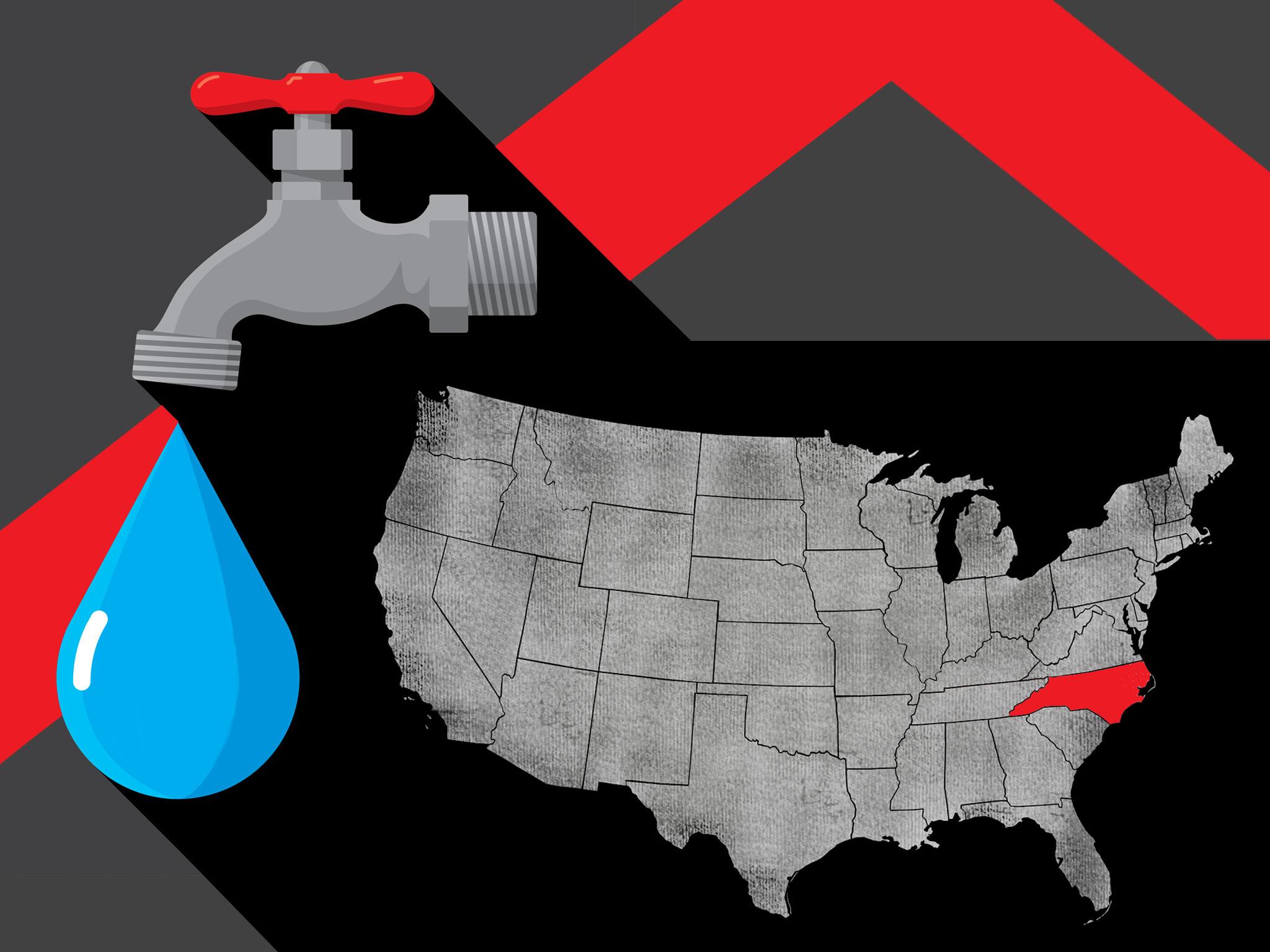‘An environmental injustice’: Residents sue after town injects chemical used to treat spas in drinking water
Attorneys say local residents ‘suffered at the hands of the city, the state and the manufacturer’ of a chemical used to treat pools and spas

Your support helps us to tell the story
From reproductive rights to climate change to Big Tech, The Independent is on the ground when the story is developing. Whether it's investigating the financials of Elon Musk's pro-Trump PAC or producing our latest documentary, 'The A Word', which shines a light on the American women fighting for reproductive rights, we know how important it is to parse out the facts from the messaging.
At such a critical moment in US history, we need reporters on the ground. Your donation allows us to keep sending journalists to speak to both sides of the story.
The Independent is trusted by Americans across the entire political spectrum. And unlike many other quality news outlets, we choose not to lock Americans out of our reporting and analysis with paywalls. We believe quality journalism should be available to everyone, paid for by those who can afford it.
Your support makes all the difference.Attorneys have reportedly filed a class action lawsuit on behalf of the community members of a small town in the state of South Carolina, where an unapproved chemical was injected into the local drinking water.
Residents of Denmark, a town of about 3,000, have been battling in the courts for years over the injection HaloSan, a chemical used to treat pools and spas, in their local drinking water. The chemical has not been approved by the US Environmental Protection Agency to disinfect drinking water, the agency said in a statement, but town officials used the additive to prevent discoloration for 10 years.
The residents were now seeking to include the state’s Department of Health and Environmental Control in their class action lawsuit, along with Berry Systems Inc., a local company. Their efforts have drawn national attention as the tainted water supply became an issue along the presidential campaign trail, with Vermont Senator Bernie Sanders donating water bottles to the town and organizing a rally in the area to raise awareness.
“It’s an environmental injustice,” Bakari Sellers, one of the lawyers involved in the class action lawsuit, told The State. “We are going to try to go and make our clients whole for the injustice they suffered at the hands of the city, the state and the manufacturer.’’
The lawsuit demands payment over exposure to the chemical, which experts have said was not known to be typically used in drinking water and was in fact banned from use in water supplies in some states. HaloSan was suspended from being used in Denmark’s drinking water by federal regulators in 2018.
Federal authorities stopped the injection of the chemical into the water supply after discovering it had been used for a decade, The State reported on Saturday.
The lawsuit argued that residents should not have been exposed to HaloSan, a chemical often used as a disinfectant, which officials said had been injected into the drinking water to kill slime.
Mike Marcus, a water bureau chief for the state’s health department, has defended the town’s use of HaloSan in its local drinking water.

The Americans who say ‘toxic soup’ tap water has given them cancer
New study shows PFAS compounds may be found in more cities than previously realised. Clark Mindock reports
He told the newspaper in a statement: “We do not believe that this has translated into adverse health effects for the users.”
Tommy Crosby, director of media relations for the South Carolina Department of Health and Environmental Control, has also previously defended the use of HaloSan and said in a statement: “The Berry Systems HaloSan treatment unit had been advertised as an effective treatment in the control of iron bacteria and was certified.”
The complaint also said the company involved obtained the inaccurate authorizations necessary to inject the chemical into the water supply.
If “defendant Berry operated with a modicum of due diligence,” the complaint read, “they would have known NSF certification was not an appropriate substitute for EPA registration.”
Activists have meanwhile continued fundraising and donating water bottles to the town, which has faced significant economic hardships for generations. Residents previously told news outlets like CNN they were unable to drink the water, which had been discolored, for years.
Join our commenting forum
Join thought-provoking conversations, follow other Independent readers and see their replies
Comments